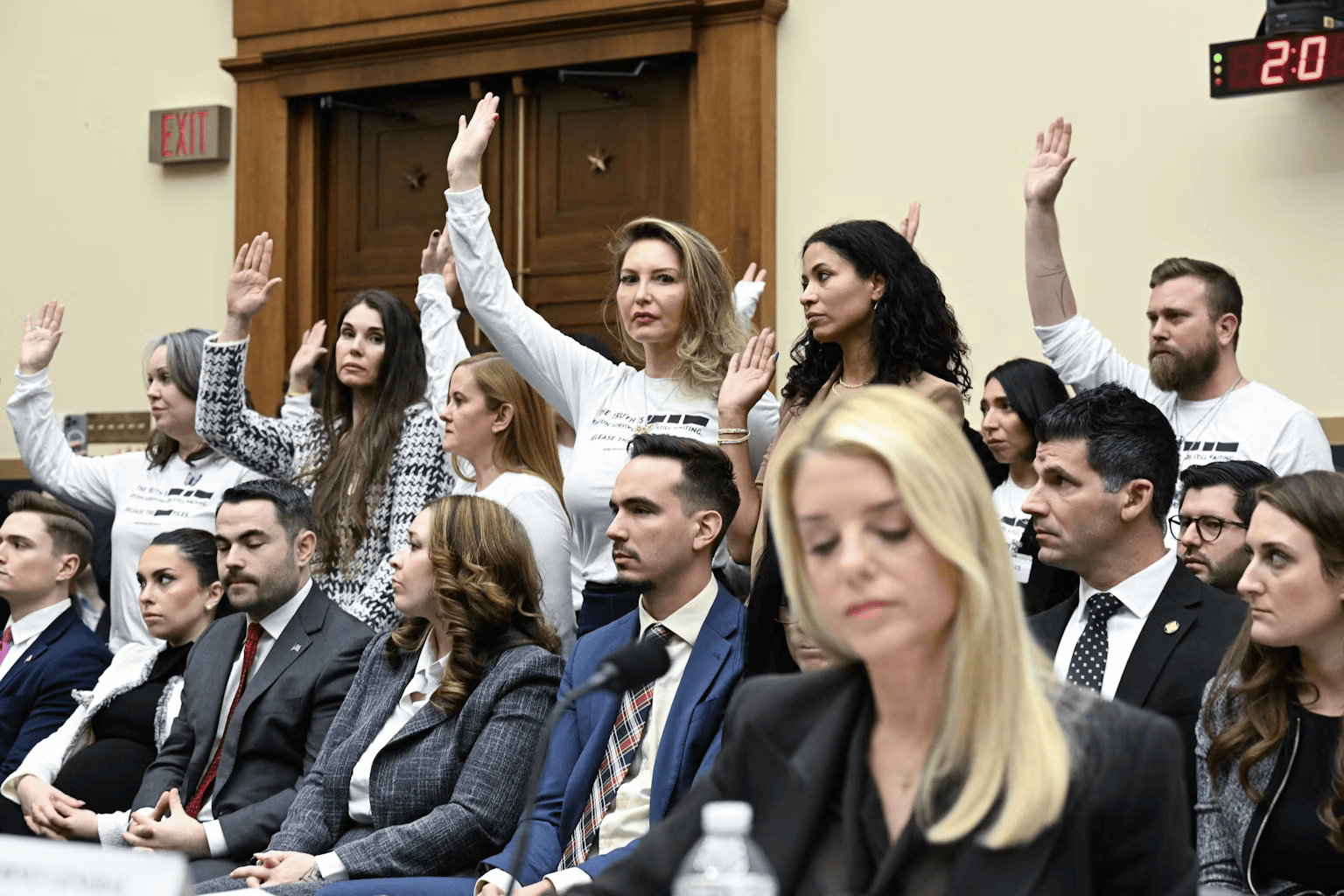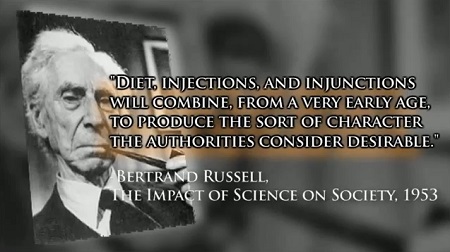
The EU Just Declared War On Free Speech In America. It Is Time To Fight Back…
Authored by Jonathan Turley,
Eighty years ago, the U.S. government launched a war bond campaign featuring a painting by artist Norman Rockwell in the struggle against the authoritarian threat from Europe. The picture they chose was Rockwell’s Freedom of Speech depicting a man rising to speak his mind at a local council meeting in Vermont. The image rallied the nation around what Louis Brandeis called our “indispensable right.”

Now, that very right is again under attack from another European government, which is claiming the right to censor what Americans are allowed to say about politics, science and other subjects.
Indeed, the threat from the European Union may succeed in curtailing American freedom to an extent that the Axis powers could not have imagined. They may win, and our leaders have not said a thing yet about it.
In my book “The Indispensable Right: Free Speech in an Age of Rage,” I discuss the inspiration for Rockwell’s painting: a young selectman in Vermont named James “Buddy” Edgerton. The descendent of a Revolutionary War hero, Edgerton stood up as the lone dissenter to a plan to build a new schoolhouse over the lack of funding for such construction.
For Rockwell, the scene was a riveting example of how one man in this country can stand alone and be heard despite overwhelming opposition to his views. It was, for Rockwell (and for many of us), the quintessential American moment.
In the 1940s, people like Edgerton had to travel to small board meetings or public spaces to speak their mind.
Today, the vast majority of political speech occurs over the Internet and specifically social media.
That is why the internet is the single greatest advancement for free speech since the printing press.
It is also the reason governments have spent decades seeking to control speech over the internet, to regulate what people can say or read.
One of the greatest threats to free speech today is the European Digital Services Act. The act bars speech that is viewed as “disinformation” or “incitement.” European Commission Executive Vice President Margrethe Vestager celebrated its passage by declaring that it is “not a slogan anymore, that what is illegal offline should also be seen and dealt with as illegal online. Now it is a real thing. Democracy’s back.”
In Europe, free speech is in free fall. Germany, France, the United Kingdom and other countries have eviscerated free speech by criminalizing speech deemed inciteful or degrading to individuals or groups. The result had made little difference to the neo-Nazi movement in countries like Germany, which is reaching record numbers. It has, however, silenced the rest of society.
According to polling, only 18 percent of Germans feel free to express their opinions in public.
Fifty-nine percent of Germans do not even feel free expressing themselves in private among friends. Only 17 percent feel free to express themselves on the internet.
They have silenced the wrong people, but there is now a massive censorship bureaucracy in Europe and the desire to silence opposing voices has become insatiable.
Some in this country have the same taste for speech-regulation. After Elon Musk bought Twitter and dismantled most of the company’s censorship program, many on the left went bonkers. That fury only increased when Musk released the “Twitter files,” confirming the long-denied coordination and support by the government in targeting and suppressing speech.
In response, Hillary Clinton and other Democratic figures turned to Europe and called upon them to use their Digital Services Act to force censorship against Americans.
The EU immediately responded by threatening Musk with confiscatory penalties against not just his company but himself. He would have to resume massive censorship or else face ruin.
It was a case of the irresistible force meeting the immovable object. The anti-free speech movement had finally found the one man who could not be bullied, coerced or threatened into submission.
Musk’s defiance has only magnified the unrelenting attacks against him in the media, academia and government. If Musk can be broken, these figures will once again exercise effective control over a large swath of speech globally.
This campaign recently came to a head when Musk had the audacity to interview former president Donald Trump. In anticipation of the interview, one of the most notorious anti-free speech figures in the world went ballistic.
European Commissioner for Internal Markets and Services Thierry Breton issued a threatening message to Musk, “We are monitoring the potential risks in the EU associated with the dissemination of content that may incite violence, hate and racism in conjunction with major political — or societal — events around the world, including debates and interviews in the context of elections.”
While offering a passing nod to the freedom of speech, he warned Musk that “all proportionate and effective mitigation measures are put in place regarding the amplification of harmful content in connection with relevant events.” In other words, be afraid, be very afraid.
Musk responded with “Bonjour!” and then suggested that Breton perform a physically challenging sexual act.
To recap, the EU is now moving to force censorship upon American citizens to meet its own demands of what is false, demeaning or inciting. And that includes censorship even of our leading political candidates for the presidency.
The response from the Biden administration was not a presidential statement warning any foreign government from seeking to limit our rights or even Secretary of State Antony Blinken calling the EU ambassador to his office for an expression of displeasure.
That’s because Biden and Harris are not displeased with but supportive of letting the EU do what they are barred from doing under our Constitution. This administration is arguably the most anti-free speech government since John Adams signed the Sedition Act. They have supported a massive system of censorship, blacklisting and targeting of opposing voices. Democratic members have given full-throated support for censorship, including pushing social media companies to expand in areas ranging from climate control to gender identity.
So, after only 80 years, our leaders are silent as a European government threatens to reduce our political speech to the lowest common denominator, which they will set according to their own values. Not a shot will be fired as Biden and Harris simply yield our rights to a global governing system.
But we do not have to go quietly into this night. Free speech remains a human right that is part of our DNA as Americans. We can fight back and protect millions of Edgertons who want to express their views regardless of the judgment of the majority.
I previously called for legislation to get the U.S. government out of the censorship business domestically. We also need new legislation to keep other countries from regulating the speech of our own citizens and companies. While this country has long threatened retaliation in combatting market barriers in other countries, we need to do the same thing for free speech. We need a federal law that opposes the intrusion of the Digital Services Act into the U.S.
If free speech is truly the “indispensable right” of all Americans, we need to treat this threat as an attack on our very existence. It is not only the rawest form of foreign intervention into an election, but a foreign attack on our very freedoms. This is why we must pass a Digital Freedom Act.
* * *
Jonathan Turley is the Shapiro Professor of Public Interest Law at George Washington University. He is the author of “The Indispensable Right: Free Speech in an Age of Rage” (Simon & Schuster).
Tyler Durden
Tue, 08/20/2024 – 05:00

















